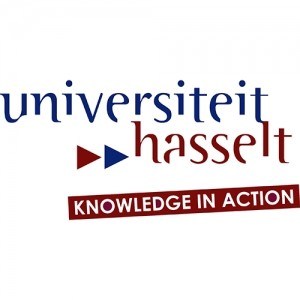Photos of university / #uantwerpen
The Master of Science in Infectious and Tropical Diseases at the University of Antwerp offers an in-depth, comprehensive curriculum designed to equip students with the knowledge and skills necessary to understand, prevent, and control infectious diseases, particularly those prevalent in tropical regions. This program provides a multidisciplinary approach, combining microbiology, epidemiology, public health, immunology, and clinical sciences to address the complex challenges posed by infectious agents. Students will explore the biology and pathology of bacteria, viruses, parasites, and fungi, as well as the sociocultural and environmental factors influencing the spread and management of infectious diseases. The program emphasizes research methodology and data analysis, preparing graduates to contribute significantly to scientific research, disease surveillance, and health policy development.
Throughout the program, students engage with a variety of teaching methods, including lectures, laboratory work, case studies, fieldwork, and internships, fostering both theoretical understanding and practical skills. The curriculum is designed to reflect current global health priorities, with special attention to emerging infectious diseases, antimicrobial resistance, and the impact of climate change on disease patterns. Students will also develop competencies in designing and implementing public health interventions and in communicating complex scientific information to diverse audiences.
The program is intended for students with a background in biological sciences, medicine, or related fields who aim to pursue careers in research, public health, epidemiology, or international health organizations. Graduates will be well-prepared to work in multidisciplinary teams tackling infectious disease challenges in local, national, and international settings. The University of Antwerp’s strong links with healthcare institutions, research centers, and the World Health Organization provide valuable opportunities for professional development and collaboration. Upon completion, students receive a Master of Science degree, opening pathways to doctoral studies or specialized professional roles in the field of infectious and tropical diseases.
Model Path part 1
Major courses
- Human parasites, micro-organisms and zoonoses
- Immunology of tropical infectious diseases
- Ecology, epidemiology and control of infectious diseases
- Pathogenesis and clinical aspects of tropical infectious diseases
- Health economics and mathematical models of infectious diseases
- Molecular epidemiology of infectious diseases
- Molecular microbiology of infectious diseases
Mandatory courses
- Bio-ethics
- Integrated Research Practicals
- Fundamentals of protein technology and proteome analysis
- Fundamentals of gene and genome technology
- Preclinical drug research
- Patents and innovation
- Advanced data analysis
Model Path part 2
Mandatory courses
- Laboratory Animal Science
- State-of-the-Art lectures in Biomedicine
- Project proposal with internship
- Master thesis with internship
Requirements
- Applicants should hold an academic Bachelor’s degree in the related area. Students who are still completing their Bachelor’s degree are also encouraged to apply. They should submit an official letter in English from their university confirming that the student is expected to finalise her/his Bachelor’s studies at the end of the current academic year, and submit up-to-date authenticated transcripts with the results of the previous years.
- Applicants are also required to submit a GMAT or GRE test score. Both the verbal and quantitative score will be taken into consideration.
- TOEFL (Test of English as a Foreign Language): paper-based TOEFL level of minimum 550, a computer-based TOEFL level of minimum 213 or an internet-based TOEFL level of minimum 80. You can find more information about TOEFL at www.toefl.org
- IELTS (International English Language Testing System): a minimum score of at least 6.5, and on each part minimum 6.0. You can find more information about IELTS at www.ielts.org;
- A copy of your valid passport or identity card/a curriculum vitae
- A motivation letter
- A legalised copy of your degree certificate (please read more information on legalisation)
- Applicants that are enrolled in the final year should submit an original and signed letter from their college or university confirming that they are expected to finalise the program at the end of the current academic year
- A copy of your academic transcripts, provided with a stamp of the university
Scholarships
- VLIR-UOS: scholarships for students from developing countries: Scholarships are available for students from 54 scholarship countries in Africa, Asia and Latin-America to follow a training or master programme at the University of Antwerp.
- ASEM-DUO: Scholarships are available for students from China, India, South-Korea and Vietnam.
- Transition Fellowship Programme: Scholarships are available for students from 4 countries in transition (Brazil, Morocco, South Africa and Turkey).
- Mastermind: Scholarships are available for international students who want to take up a master degree programme.
- Global Study Awards: An individual global study award with a maximum value of £10000
The Master of Science in Infectious and Tropical Diseases at the University of Antwerp is a comprehensive program designed to equip students with the knowledge and skills necessary to understand, prevent, and control infectious diseases, particularly those common in tropical regions. This multidisciplinary program combines microbiology, immunology, epidemiology, public health, and clinical practice to provide a well-rounded education. Students will explore the biology of pathogens, the mechanisms of disease transmission, and strategies for disease management and prevention. The curriculum emphasizes research methodology, allowing students to engage in scientific investigations, data analysis, and evidence-based decision-making. Throughout the program, students have the opportunity to participate in practical laboratory work, fieldwork in endemic regions, and internships with health organizations. The program aims to prepare graduates for careers in research, healthcare, public health policy, and international health organizations. It also encourages interdisciplinary collaboration to address complex health challenges posed by infectious and tropical diseases. Graduates are expected to contribute effectively to disease control efforts and health promotion, particularly in resource-limited settings. The program is suitable for students with backgrounds in biomedical sciences, medicine, pharmacy, or related fields who are interested in specialization within infectious and tropical diseases. Upon completion, students receive a Master of Science degree, qualifying them for roles in academia, research institutions, NGOs, government agencies, and private sector stakeholders involved in infectious disease control and health improvement initiatives. The University of Antwerp ensures high-quality teaching, practical training, and global perspectives to prepare students for international careers.



